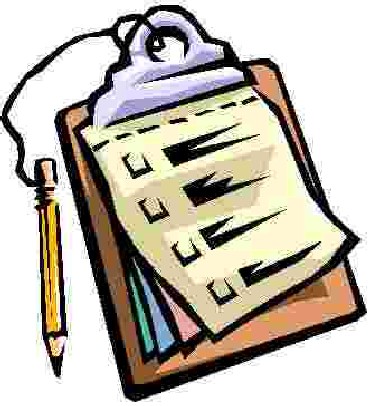Carl Laurie, principal, Christ Church School, Byculla explains why students must make the most of their revision time. Illustrations: Uttam Ghosh
Dear Students,If you are appearing for a board exam this year, you must remember that this is just another exam, something which you have been writing all through your school years.
So it's important, for you to just concentrate on your revision, and not look as the day of the exam as an impending dooms day.
Let me share with you a few tips that students can consider while studying for a board exam:
1.Take shorter breaks
Your study routine needs to be tweaked a little. In the beginning of the year, you spared lesser time to study and took longer breaks.
Now as the exams approach, you must take shorter breaks and focus more on studying and practising for the exam.
The breaks are important, but they must be 'just breaks'-- may be an hour of concerted effort, with a ten minute break-- you can walk around, attend a phone call, talk to the family or even catch a glimpse of your favourite programme.
But do not spend more than 10 minutes on your break.
2. Tackle difficult subjects when the mind is fresh
Subjects like mathematics, physics, chemistry and accounts must be tackled when the mind is fresh.
As you get tired, you can move towards revising the chapters in languages, and social sciences.
Before getting back to the more strenuous math problems, a short spell with doing survey maps or biology diagrams can really help you.
3. Time your studies well
Be systematic in your revision.
Prepare a study time-table and compare it with your exam time-table as well.
For instance, papers that have a reasonable gap for preparation can be tackled later.
At this stage, try and revise the papers that are scheduled at the beginning.
4. Eat a balanced diet
Be light on your diet, but eat nutritious foods, especially fruits, which give you energy yet keep you light and energetic.
Drink plenty of water, keep yourself hydrated.
5. Make notes
While revising, remember to jot down important points that could just be glanced over towards the end.
6. Don't let parental pressure affect you
During exams, it's obvious that parents are tenser than students.
Don't let this affect you.
You have a goal in front of you, just move steadfastly towards that goal, giving your worried parents a re-assuring smile.
8. Clear all your doubts
Be brash for once, go back and consult your teachers if you have any doubts.
Remember your teacher will be more than happy to clear your doubts.
9. Be confident about your preparation
At times, students feel that they forget the previous chapters, as they move on.
Believe me, it doesn't happen.
Whatever you study conscientiously will be registered in your brain.
The question paper will act as a trigger, and all that you studied comes right back to your memories.
So do not worry thinking that you will forget what you learn. It's a feeling that will fade eventually with your confidence.
10. Prepare a checklist
Make a recce to your exam centre to see how long it takes you to reach, and ensure your seat number is at the correct centre.
Ensure your stationery is in order--your pens, pencils, geometry box, erasers, hall ticket (make a photo copy of your hall ticket and keep it safe) transparent pouches, colour pencils for map work.
Keep a check-list of the same before you leave your home to write an exam.











Comment
article